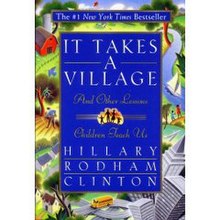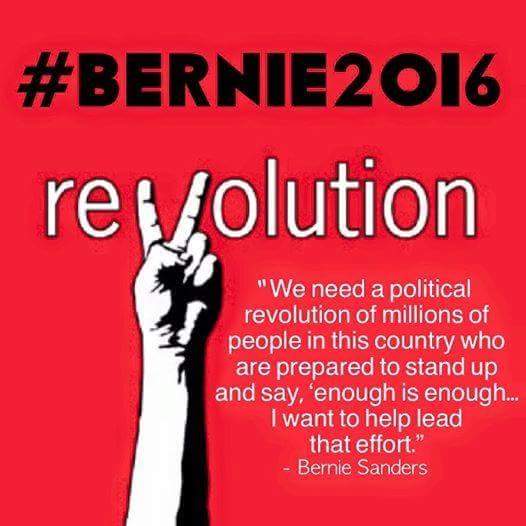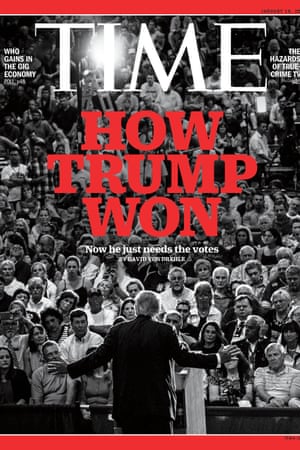We have an exciting Democratic primary. I can tell by my Facebook and Twitter feeds. The Bernie supporters are excited and passionate. They regularly report on their candidate's excellent chances, on Hillary's flaws, and yes, on a bird landing on his podium in Portland. The Hillary supporters are more subdued. They "like" pro-Hillary posts but don't show the same exuberance.
A little background. My first vote was for George McGovern in 1972. I spent the summer and fall that year walking precincts for a genuine liberal. I remember my excitement when we were first to submit petition signatures, putting his name (then the California rules) first on every ballot. That was worth, we were told, about 5% of the vote. McGovern lost by a landslide, giving us nearly eight years of Nixon. 1972 was the beginning of my principled, but losing, choices.
Here are my November votes for the next 20 years:
1996 was the turning point for me. In 1996, the special prosecutor's ad nauseum investigations of the Clintons dragged on, disrupting governance and costing a bundle for four years. Like a lot of Americans, I was sick of it. Though Bill Clinton was well to the right of me -- supporting NAFTA, GATT, further escalation in Iraq, and the near demise of support for families in poverty -- I voted for him out of disgust for the muck-raking. My first vote for a winning presidential candidate.
For the next four presidential elections, I also voted for the Democratic presidential ticket, supporting Al Gore, John Kerry and Barrack Obama.
This year, we have a choice between ideology and experience. Twenty years ago, I have no doubt I would have been supporting Bernie Sanders' revolution. I would be excited about a candidate who speaks truth to power, an unconventional candidate without party support but who excites huge rallies.
Yet I believe experience, effectiveness and an insider's access are important too. Sanders has been on the right side of most issues (gun control being a glaring exception) but has accomplished very little in his twenty-six years in Congress. In 2016, he has focused on his own campaign, ignoring down ballot candidates and issues. Yet we know that this year, Congress, the Presidency and the Supreme Court are all up for grabs. It is imperative that he give time to candidates for Congress, state legislatures and governorships.
 Contrast this with Hillary Clinton. She has been the most attacked woman in American politics, probably ever. While Sanders was standing for liberal principles, Clinton has been defending herself
Contrast this with Hillary Clinton. She has been the most attacked woman in American politics, probably ever. While Sanders was standing for liberal principles, Clinton has been defending herself
against attacks that ranged from Whitewater to being too involved in her husband's presidency to her fashion choices to Benghazi. She has a history of fighting for children's issues, women's issues,
universal health care, and international development. Yes, she has had her eye on the presidency for many years, grooming herself and cultivating support from major donors and the Democratic party. She has experience at the state level, in Congress, in foreign policy and in the White House. She is likely the most well-prepared candidate we've ever had. And she has raised money for down ballot candidates and stumped for them. She realizes the value of the whole ballot.
But with that experience comes a history of compromise: sometimes hawkish on foreign policy, votes for both the Iraq War and the Patriot Act, friendliness with Wall Street. Are those troubling? Indeed they are. She has played the game that is American politics. I'm reminded of LBJ, rather an SOB but who else could have accomplished the Civil Rights and Voting Rights Acts?
Unlike my friends who support Sanders, I doubt his electability in November. It's one thing to take a poll now when Karl Rove is buying ads to support him and no one is attacking him. It will be quite another during the general election when $1 billion in attack ads will be leveled against the Democratic candidate. Those ads against Clinton will simply rehash old news; everyone has heard the attacks. The ads against Sanders (the GOP's preferred opponent) will have a greater impact.
Though I will support whichever Democrat wins the nomination in July, I lean toward experience, electability, down ticket advocacy, and the ability to accomplish change. I'd love to see Sanders' platforms implemented. I just doubt he could accomplish them -- any of them.
My younger self would have gone for ideology. My older self chooses effectiveness.
A little background. My first vote was for George McGovern in 1972. I spent the summer and fall that year walking precincts for a genuine liberal. I remember my excitement when we were first to submit petition signatures, putting his name (then the California rules) first on every ballot. That was worth, we were told, about 5% of the vote. McGovern lost by a landslide, giving us nearly eight years of Nixon. 1972 was the beginning of my principled, but losing, choices.
Here are my November votes for the next 20 years:
As you can see, I did not vote for either of the major parties and held no hope of voting for a winner. My oft-stated belief was that one should vote her conscience, not the polls.1976: Eugene McCarthy, Independent
1980: Barry Commoner, Citizens Party
1984: Sonia Johnson, Citizens Party
1988: Eugene McCarthy, Consumer Party
1992: Lenora Fulani, New Alliance Party
1996 was the turning point for me. In 1996, the special prosecutor's ad nauseum investigations of the Clintons dragged on, disrupting governance and costing a bundle for four years. Like a lot of Americans, I was sick of it. Though Bill Clinton was well to the right of me -- supporting NAFTA, GATT, further escalation in Iraq, and the near demise of support for families in poverty -- I voted for him out of disgust for the muck-raking. My first vote for a winning presidential candidate.
For the next four presidential elections, I also voted for the Democratic presidential ticket, supporting Al Gore, John Kerry and Barrack Obama.
This year, we have a choice between ideology and experience. Twenty years ago, I have no doubt I would have been supporting Bernie Sanders' revolution. I would be excited about a candidate who speaks truth to power, an unconventional candidate without party support but who excites huge rallies.
Yet I believe experience, effectiveness and an insider's access are important too. Sanders has been on the right side of most issues (gun control being a glaring exception) but has accomplished very little in his twenty-six years in Congress. In 2016, he has focused on his own campaign, ignoring down ballot candidates and issues. Yet we know that this year, Congress, the Presidency and the Supreme Court are all up for grabs. It is imperative that he give time to candidates for Congress, state legislatures and governorships.
 Contrast this with Hillary Clinton. She has been the most attacked woman in American politics, probably ever. While Sanders was standing for liberal principles, Clinton has been defending herself
Contrast this with Hillary Clinton. She has been the most attacked woman in American politics, probably ever. While Sanders was standing for liberal principles, Clinton has been defending herselfagainst attacks that ranged from Whitewater to being too involved in her husband's presidency to her fashion choices to Benghazi. She has a history of fighting for children's issues, women's issues,
universal health care, and international development. Yes, she has had her eye on the presidency for many years, grooming herself and cultivating support from major donors and the Democratic party. She has experience at the state level, in Congress, in foreign policy and in the White House. She is likely the most well-prepared candidate we've ever had. And she has raised money for down ballot candidates and stumped for them. She realizes the value of the whole ballot.
But with that experience comes a history of compromise: sometimes hawkish on foreign policy, votes for both the Iraq War and the Patriot Act, friendliness with Wall Street. Are those troubling? Indeed they are. She has played the game that is American politics. I'm reminded of LBJ, rather an SOB but who else could have accomplished the Civil Rights and Voting Rights Acts?
Unlike my friends who support Sanders, I doubt his electability in November. It's one thing to take a poll now when Karl Rove is buying ads to support him and no one is attacking him. It will be quite another during the general election when $1 billion in attack ads will be leveled against the Democratic candidate. Those ads against Clinton will simply rehash old news; everyone has heard the attacks. The ads against Sanders (the GOP's preferred opponent) will have a greater impact.
Though I will support whichever Democrat wins the nomination in July, I lean toward experience, electability, down ticket advocacy, and the ability to accomplish change. I'd love to see Sanders' platforms implemented. I just doubt he could accomplish them -- any of them.
My younger self would have gone for ideology. My older self chooses effectiveness.



Comments
Post a Comment
I'm interested in your comments.